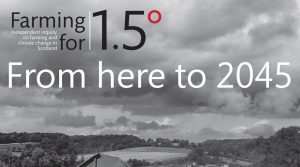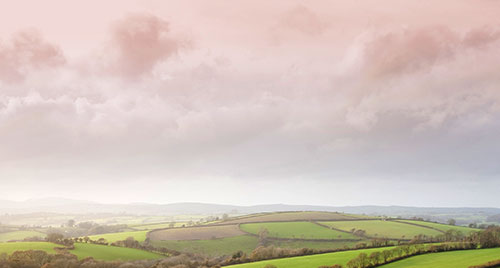Change is inevitable: farmers need to be in the driving seat, not at the back of the bus…
Tuesday 20th July 2021 in Uncategorised

…is how the authors of an independent report setting out a roadmap for farming in Scotland described where we need to be to tackle the climate and nature emergencies. The Scottish Government is also committed to a net zero impact by 2045.
The report sets out a pathway to 2032 and on to 2045 delivering transition along a route set by farmers. The visionary outcome will deliver reductions in each of the three key greenhouse gases:
For carbon dioxide there will be some efficiency savings in the next ten years, in preparation for total decarbonisation of farm machinery in the 2030s.
For methane reductions of up to 25% by 2032 will be achieved through a combination of better animal health, improved genetics, early adoption of feed additives and better manure management.
By 2045 a reduction of 50% is possible through low methane breeding and widespread adoption of feed additives.
For nitrous oxide a reduction of 25% by 2032 is feasible through more efficient use of bagged nitrogen, manures and slurries, increasing the use of legumes and reducing nitrogen use in areas of land being farmed for nature.
Nutrient budgeting, yield mapping, crop monitoring, controlled release fertilisers and variable rate application all contribute to effective nitrogen use. Ongoing uptake of these measures would result in a cumulative reduction of 50% in nitrous oxide emissions by 2045.
In combination, these measures would achieve a 55% reduction in emissions by 2045.
The proposals also provide for continuing grassland and arable soil carbon sequestration through best practice management, and significant on-farm sequestration in woodlands and wetlands.
The full report can be read at https://a7353cf8-3f00-4057-ba25-219e031620a6.usrfiles.com/ugd/a7353c_db9fa0546fb2487dbf014e8cc4865019.pdf

